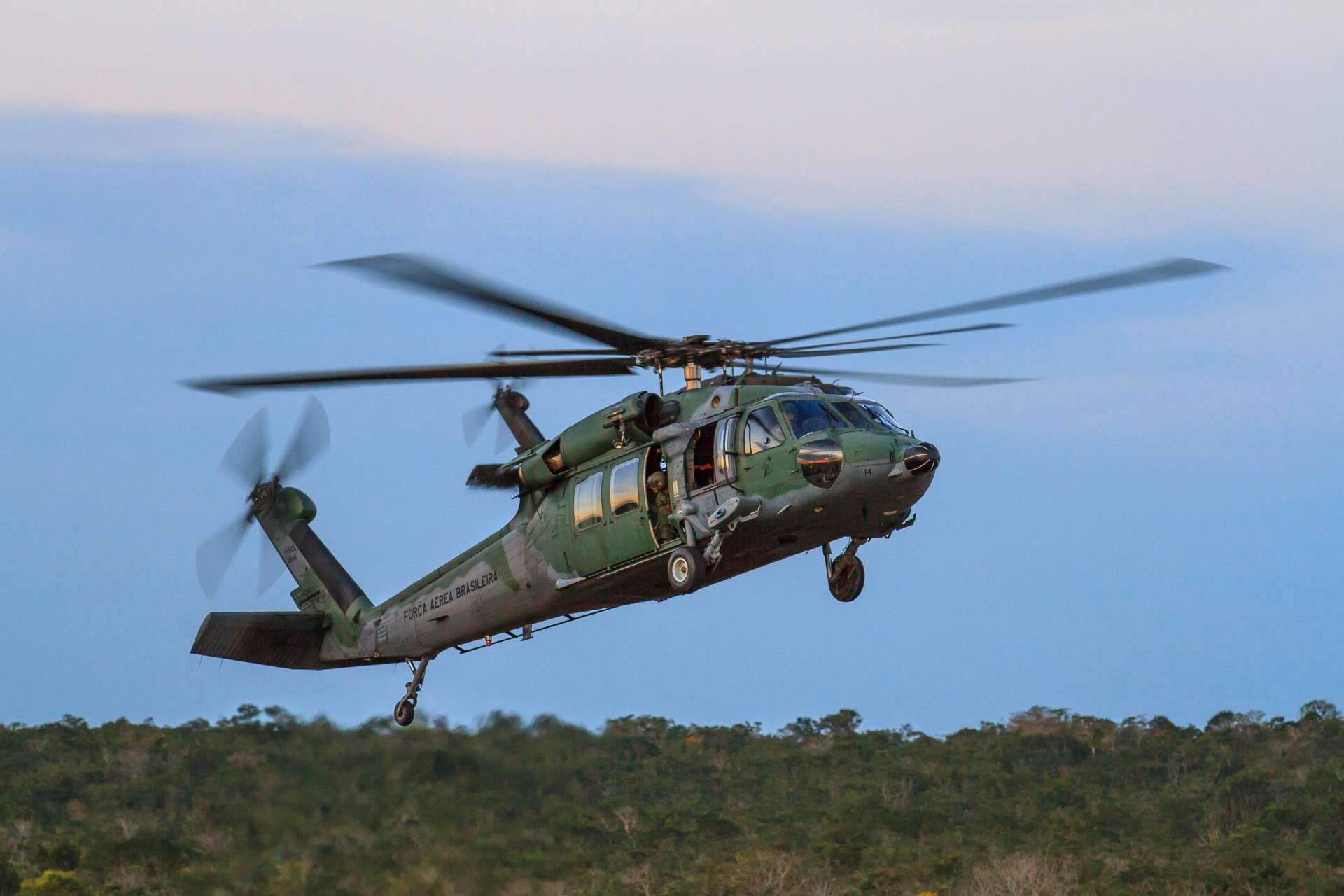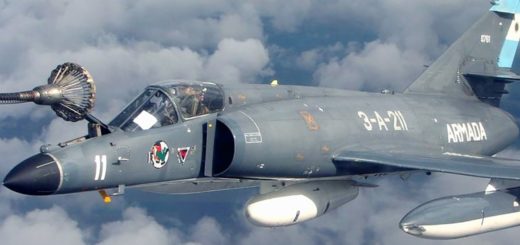Brazil to start receiving new US UH-60M Black Hawk helicopters in 2025

{loadposition bannertop}
{loadposition sidebarpub}
On November 15, 2024, the Brazilian Army announced that it would begin receiving 12 Sikorsky UH-60M Black Hawk helicopters, starting in 2025. These helicopters were purchased from the United States through the Foreign Military Sales (FMS) program. The delivery schedule anticipates the first helicopter arriving next year, with the remainder expected between 2027 and 2029.Follow Army Recognition on Google News at this link
The helicopters, designated HM-2A in the Brazilian Army, are intended to replace four UH-60L Black Hawks (HM-2) and eight Airbus Helicopters AS532UE Cougars (HM-3) currently in service. (Picture source: Brazilian Air Force)
The procurement, approved by the U.S. government in May 2024, includes 12 UH-60M Black Hawk helicopters, 34 T700-GE-701D turboshaft engines (24 installed and 10 spare), 28 EAGLE-M Integrated Inertial Navigation GPS systems, and 24 AN/ARC-231A radio systems. The overall deal is valued at up to $950 million. The helicopters will be new from the factory under the U.S. Army’s Multi-Year X production program, which allocates excess defense articles for sale to allied nations. This continues the Brazilian Army’s policy of acquiring new helicopters rather than used equipment.
A team from the U.S. Army and Sikorsky visited the Army Aviation Command (CAvEx) at Taubaté Aviation Base in São Paulo to evaluate its infrastructure and recommend adjustments needed to accommodate the new helicopters. The base currently operates Airbus H125M Esquilo and H225M Caracal helicopters, necessitating modifications for the integration of the Black Hawks. The base is also home to multiple aviation units, including the 1st and 2nd Army Aviation Battalions, the Army Aviation Training Center, and the Maintenance and Supply Battalion.
The T700-GE-701D engines included in the deal are not the latest technology, as the U.S. Army is in the process of transitioning to the T901 Improved Turbine Engine. The T901, designed to enhance performance, range, and fuel efficiency, is undergoing testing with Black Hawk helicopters but is not included in Brazil’s contract. Additionally, this purchase does not include industrial, economic, or technological compensation (offset) clauses, unlike previous Brazilian military acquisitions such as the F-39 Gripen fighter and H-36 Caracal helicopter projects.
Maintenance capabilities for Sikorsky helicopters in Brazil have been a longstanding issue. The manufacturer does not operate a dedicated maintenance center in the country, instead relying on logistics support contracts and authorized workshops. This differs from competitors like Airbus and Leonardo, which have more comprehensive local support facilities.
The acquisition follows a history of Black Hawk operations in Brazil. The first four UH-60L Black Hawks were delivered to the Brazilian Army in 1997 for peacekeeping missions. Additional deliveries included six configured for special forces and search-and-rescue in 2008, followed by ten more in 2009, with deliveries continuing through 2011. The new helicopters will be distributed across Army Aviation Battalions in Taubaté, Campo Grande, and Manaus, replacing older aircraft to support a range of missions.
Earlier in 2024, a delegation led by Army General Flávio Marcus Lancia Barbosa visited the U.S. Army Materiel Command, Sikorsky, and the Brazilian Army Commission in Washington to finalize details of the acquisition. The delegation coordinated with U.S. agencies to ensure the terms of the Government-to-Government (G2G) purchase met operational needs. Furthermore, this acquisition reflects the Brazilian Army’s ongoing modernization of its aviation fleet, with the delivery of the UH-60M helicopters aiming to enhance operational capabilities across its units. The helicopters are expected to provide continuity in roles previously fulfilled by the UH-60L and AS532UE fleets, including troop transport, medical evacuation, and support for special operations.

{loadposition bannertop}
{loadposition sidebarpub}
On November 15, 2024, the Brazilian Army announced that it would begin receiving 12 Sikorsky UH-60M Black Hawk helicopters, starting in 2025. These helicopters were purchased from the United States through the Foreign Military Sales (FMS) program. The delivery schedule anticipates the first helicopter arriving next year, with the remainder expected between 2027 and 2029.
Follow Army Recognition on Google News at this link
The helicopters, designated HM-2A in the Brazilian Army, are intended to replace four UH-60L Black Hawks (HM-2) and eight Airbus Helicopters AS532UE Cougars (HM-3) currently in service. (Picture source: Brazilian Air Force)
The procurement, approved by the U.S. government in May 2024, includes 12 UH-60M Black Hawk helicopters, 34 T700-GE-701D turboshaft engines (24 installed and 10 spare), 28 EAGLE-M Integrated Inertial Navigation GPS systems, and 24 AN/ARC-231A radio systems. The overall deal is valued at up to $950 million. The helicopters will be new from the factory under the U.S. Army’s Multi-Year X production program, which allocates excess defense articles for sale to allied nations. This continues the Brazilian Army’s policy of acquiring new helicopters rather than used equipment.
A team from the U.S. Army and Sikorsky visited the Army Aviation Command (CAvEx) at Taubaté Aviation Base in São Paulo to evaluate its infrastructure and recommend adjustments needed to accommodate the new helicopters. The base currently operates Airbus H125M Esquilo and H225M Caracal helicopters, necessitating modifications for the integration of the Black Hawks. The base is also home to multiple aviation units, including the 1st and 2nd Army Aviation Battalions, the Army Aviation Training Center, and the Maintenance and Supply Battalion.
The T700-GE-701D engines included in the deal are not the latest technology, as the U.S. Army is in the process of transitioning to the T901 Improved Turbine Engine. The T901, designed to enhance performance, range, and fuel efficiency, is undergoing testing with Black Hawk helicopters but is not included in Brazil’s contract. Additionally, this purchase does not include industrial, economic, or technological compensation (offset) clauses, unlike previous Brazilian military acquisitions such as the F-39 Gripen fighter and H-36 Caracal helicopter projects.
Maintenance capabilities for Sikorsky helicopters in Brazil have been a longstanding issue. The manufacturer does not operate a dedicated maintenance center in the country, instead relying on logistics support contracts and authorized workshops. This differs from competitors like Airbus and Leonardo, which have more comprehensive local support facilities.
The acquisition follows a history of Black Hawk operations in Brazil. The first four UH-60L Black Hawks were delivered to the Brazilian Army in 1997 for peacekeeping missions. Additional deliveries included six configured for special forces and search-and-rescue in 2008, followed by ten more in 2009, with deliveries continuing through 2011. The new helicopters will be distributed across Army Aviation Battalions in Taubaté, Campo Grande, and Manaus, replacing older aircraft to support a range of missions.
Earlier in 2024, a delegation led by Army General Flávio Marcus Lancia Barbosa visited the U.S. Army Materiel Command, Sikorsky, and the Brazilian Army Commission in Washington to finalize details of the acquisition. The delegation coordinated with U.S. agencies to ensure the terms of the Government-to-Government (G2G) purchase met operational needs. Furthermore, this acquisition reflects the Brazilian Army’s ongoing modernization of its aviation fleet, with the delivery of the UH-60M helicopters aiming to enhance operational capabilities across its units. The helicopters are expected to provide continuity in roles previously fulfilled by the UH-60L and AS532UE fleets, including troop transport, medical evacuation, and support for special operations.






